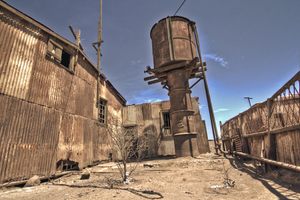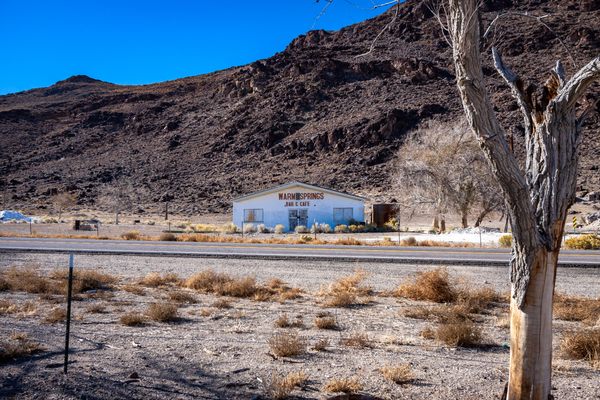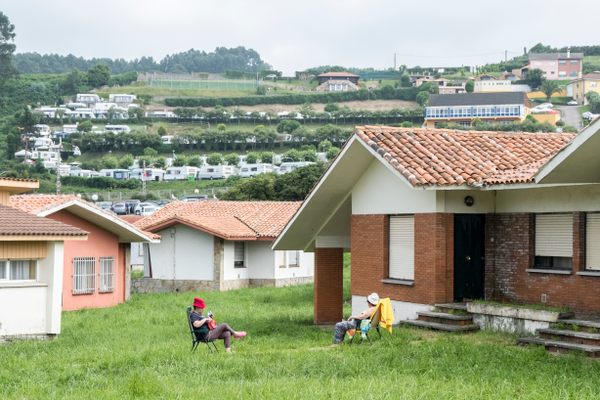About
Until 1909, Chile had something very special. Known as white gold, Chile saltpeter, or more technically as Sodium nitrate, it was an extremely valuable commodity for two main reasons: it could kill, and it could also give life.
Like its cousin, potassium nitrate, sodium nitrate could be used as a fertilizer, an explosive, or rocket fuel. When someone talks about a fertilizer bomb this is the stuff they are talking about. The reason it was so valuable was that you couldn't really make the stuff, you had to find it and Chile had tons of it.
So valuable was this "white gold" that Chile went to war with its neighbors over areas containing the valuable saltpeter. In the oft-forgotten War of the Pacific or "Saltpeter war," Chile, Peru, and Bolivia all fought over territory containing the minerals with Chile gaining much of the disputed territory.
At the turn of the century, the Saltpeter Works of Humberstone and Santa Laura were both busy trying to extract as much of this Saltpeter as possible. Hundreds of buildings were built and whole communities of workers from South America, Europe, and Asia formed around these towns. In the words of UNESCO, they became a "distinct urban community with its own language, organization, customs, and creative expressions, as well as displaying technical entrepreneurship."
But something was coming that would change this all. In 1909 two German scientists, Fritz Haber and Carl Bosch figured out how to chemically fix nitrogen, that is, how to make this white gold on an industrial level. It was disastrous for the Saltpeter towns, and despite efforts to compete, by 1960 they were completely and totally abandoned.
Today the town's ghostly remains stand as rusting ruins in the inhospitable Atacama desert. In 2005 UNESCO declared them a World Heritage Site.
Other "nitrate towns" nearby in a similar condition include Chacabuco, Maria Elena, Pedro de Valdivia, Puelma and Aguas Santas. It is ill-advised to visit Chacabuco, which was used as a concentration camp by Pinochet and is still surrounded by unmarked landmines.
Related Tags
Community Contributors
Published
December 21, 2009




































